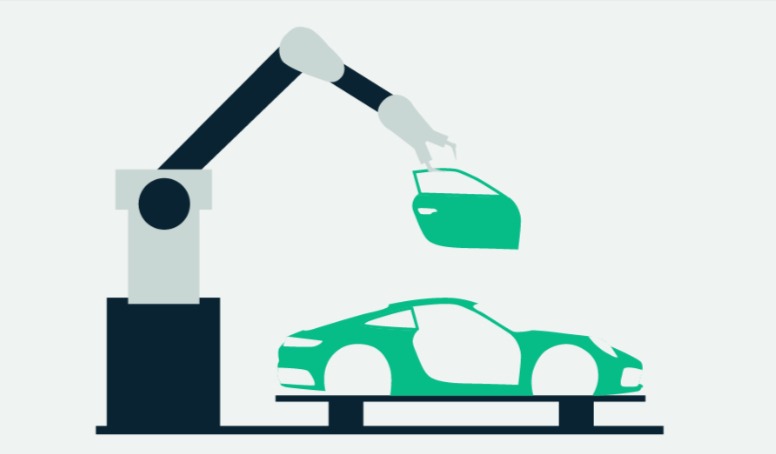In the fast-paced world of automotive production, efficiency is the driving force that separates industry leaders from the rest. The ability to streamline processes, optimize resources, and maintain high-quality standards is crucial for success in this competitive landscape. In this blog post, we will delve into the key components of automotive production that play a pivotal role in driving efficiency.
1. Advanced Robotics and Automation:
One of the primary factors revolutionizing automotive production is the integration of advanced robotics and automation. These technologies enhance efficiency by performing repetitive tasks with precision and speed, reducing the margin of error. Automated assembly lines can handle complex processes, such as welding and painting, resulting in faster production cycles and improved overall quality.
Robotic arms equipped with sensors and artificial intelligence are now capable of intricate tasks, ensuring that each component is placed and secured accurately. This not only accelerates the manufacturing process but also minimizes the risk of defects, contributing to the overall efficiency of the production line.
2. Supply Chain Optimization:
Efficient automotive production relies heavily on a well-optimized supply chain. Timely access to high-quality raw materials and components is essential for maintaining seamless operations. Manufacturers leverage technology to create transparent and interconnected supply chains, enabling real-time tracking of inventory levels and ensuring that production lines are well-stocked.
Just-in-time manufacturing practices further enhance efficiency by minimizing the need for large inventories, reducing storage costs, and preventing overproduction. A well-managed supply chain allows automotive manufacturers to respond swiftly to market demands, adapt to changes, and maintain a competitive edge.
3. Data Analytics and Predictive Maintenance:
In the era of Industry 4.0, data analytics has emerged as a game-changer in automotive production. Manufacturers harness the power of big data to gain insights into production processes, identify bottlenecks, and optimize workflows. Predictive analytics play a crucial role in minimizing downtime by forecasting equipment failures before they occur.
By implementing predictive maintenance strategies, automotive companies can schedule repairs and replacements during planned maintenance periods, preventing unexpected breakdowns that could disrupt production schedules. This proactive approach not only saves time and resources but also extends the lifespan of machinery, contributing to long-term efficiency.
4. Lean Manufacturing Principles:
The philosophy of lean manufacturing focuses on eliminating waste and optimizing efficiency. Automotive manufacturers adopt lean principles to streamline processes, reduce production costs, and enhance overall productivity. Techniques such as 5S (Sort, Set in order, Shine, Standardize, Sustain) and Kaizen (continuous improvement) are integral parts of lean manufacturing.
Implementing lean practices involves fostering a culture of continuous improvement, where employees are encouraged to identify and address inefficiencies in real time. By eliminating unnecessary steps in the production process and optimizing workflows, automotive manufacturers can achieve higher levels of efficiency and cost-effectiveness.
5. Human-Machine Collaboration:
While automation and robotics play a significant role in modern automotive production, human expertise remains irreplaceable. Collaborative robots, also known as cobots, work alongside human operators to leverage the strengths of both. Cobots can handle repetitive tasks, allowing human workers to focus on more complex and strategic aspects of production.
Creating a harmonious collaboration between humans and machines requires investing in training programs to upskill the workforce. Ensuring that employees are proficient in working alongside automated systems not only enhances efficiency but also contributes to a safer and more dynamic work environment.
6. Energy Efficiency and Sustainability:
Efficient automotive production goes hand in hand with sustainability. Manufacturers are increasingly adopting eco-friendly practices and investing in energy-efficient technologies to reduce their environmental footprint. Implementing energy-efficient equipment, optimizing production layouts for energy conservation, and incorporating sustainable materials contribute to a more environmentally friendly production process.
Sustainable practices not only align with global environmental goals but also often result in cost savings over the long term. From energy-efficient lighting systems to the use of recycled materials, automotive manufacturers are making strides towards greener and more efficient production processes.
In the end, the quest for driving efficiency in automotive production demands an all-encompassing approach that incorporates the latest technology, optimized procedures, and an unwavering commitment to sustainability. As the sector evolves at an unprecedented pace, keeping pace necessitates a proactive mindset that welcomes innovation, maximizes data, and encourages continuous improvement.
Utilizing strategies including cutting-edge plasma surface treatment can help companies scale new heights of productivity while minimizing their environmental impact. By focusing on these critical factors, auto manufacturers can navigate the fast lane with ease, ensuring sustainable success in a rapidly changing business environment.
